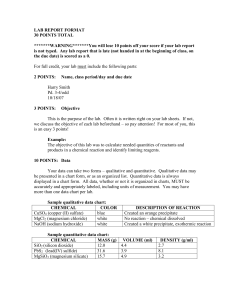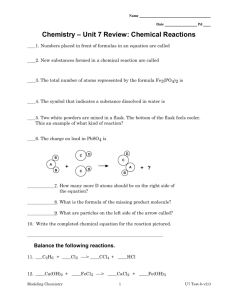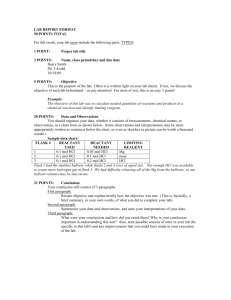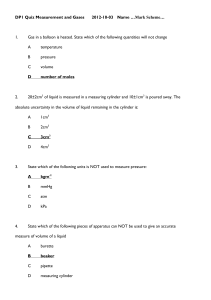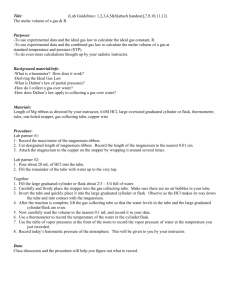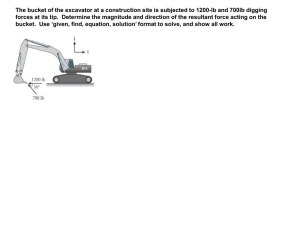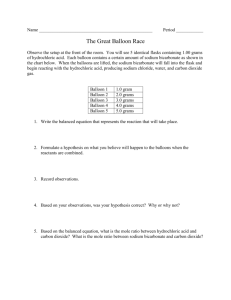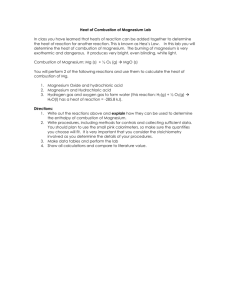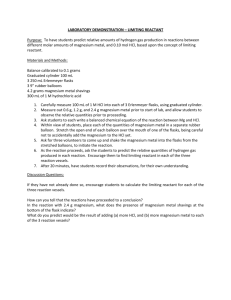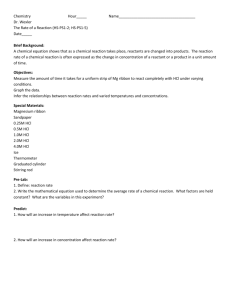Limiting Reagent Lab Report: Mg + HCl Reaction
advertisement
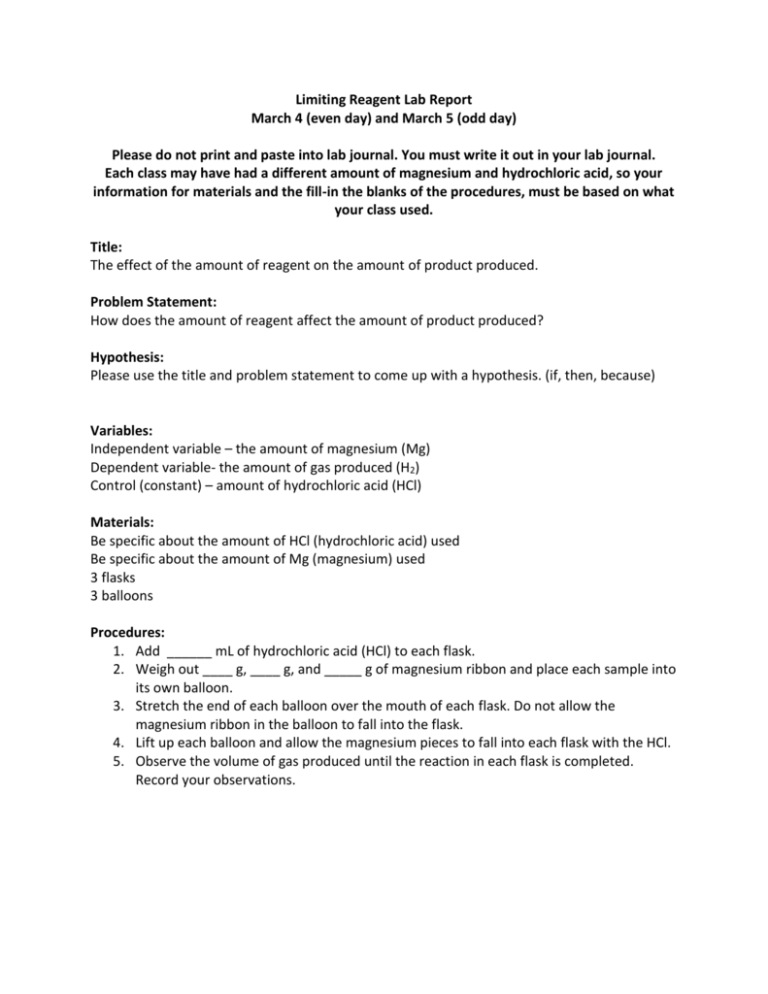
Limiting Reagent Lab Report March 4 (even day) and March 5 (odd day) Please do not print and paste into lab journal. You must write it out in your lab journal. Each class may have had a different amount of magnesium and hydrochloric acid, so your information for materials and the fill-in the blanks of the procedures, must be based on what your class used. Title: The effect of the amount of reagent on the amount of product produced. Problem Statement: How does the amount of reagent affect the amount of product produced? Hypothesis: Please use the title and problem statement to come up with a hypothesis. (if, then, because) Variables: Independent variable – the amount of magnesium (Mg) Dependent variable- the amount of gas produced (H2) Control (constant) – amount of hydrochloric acid (HCl) Materials: Be specific about the amount of HCl (hydrochloric acid) used Be specific about the amount of Mg (magnesium) used 3 flasks 3 balloons Procedures: 1. Add ______ mL of hydrochloric acid (HCl) to each flask. 2. Weigh out ____ g, ____ g, and _____ g of magnesium ribbon and place each sample into its own balloon. 3. Stretch the end of each balloon over the mouth of each flask. Do not allow the magnesium ribbon in the balloon to fall into the flask. 4. Lift up each balloon and allow the magnesium pieces to fall into each flask with the HCl. 5. Observe the volume of gas produced until the reaction in each flask is completed. Record your observations. Data: Mg (s) + HCl(aq) → H(g) + MgCl2(aq) (Balance the equation.) Data table: Amount of magnesium (Mg) Observations Analysis Questions: 1. Define limiting and excess reagents. 2. How is the amount of product in a reaction affected by an insufficient quantity of any of the reactants (reagents) 3. What was the limiting reagent in the reaction? Explain. 4. What was the excess reagent in the reaction? Explain. 5. Which balloon was the largest? Explain. 6. Which balloon was the smallest? Explain. 7. Rust is produced when iron reacts with oxygen. How many grams of Fe2O3 are produced when 12.0 g of iron rusts? 4Fe(s) + O2(g) → 2Fe2O3(s) Use the rubric/conclusion script to write your 3 conclusion paragraphs. Indent all 3 paragraphs. The second paragraph should be based on your data table and analysis questions. This should be an “A” if done correctly.
